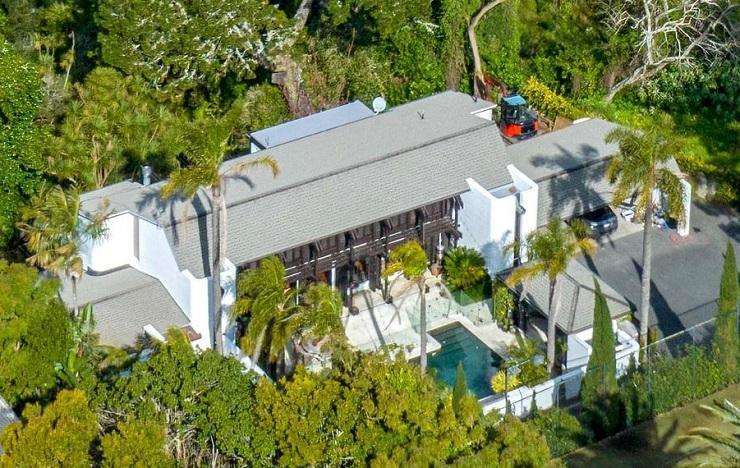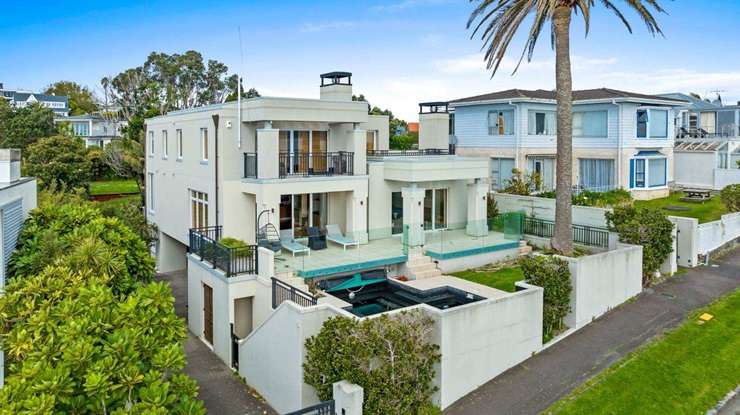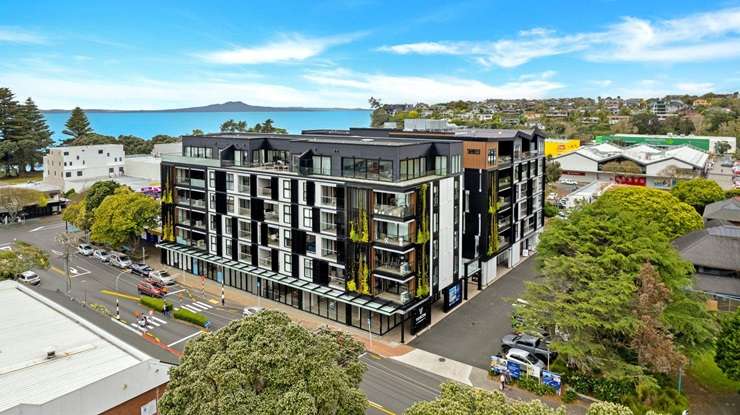The listing for 127a Clevedon Road, in Auckland’s Papakura, makes clear no one’s stepping a foot inside the property. The three-bedroom home is being sold at a mortgagee auction next month and viewings are “kerbside only”.
“Please note that due to unique circumstances, there will be no onsite access,” Ray White agents Sandra and Cole Bullock’s listing makes clear.
“Make sure to do your due diligence and get your ducks in a row, as this property will be sold and is being offered to the market ‘as-is, where-is’.”
It’s not the only mortgagee listing this year that’s invited buyers to take a gamble. A multi-million-dollar resort-style mansion on Cheverton Place, in Auckland’s Kohimarama, could only be assessed from the listing photos, with agents making clear they had not inspected the property. It was withdrawn at the start of this month, although it’s unclear if a buyer was found, with the agents refusing to comment on its sale status.
Start your property search
The fate of another multi-million-dollar mortgagee mansion is also unclear. The listing for the Cliff Road property, in St Heliers, was also withdrawn from the market at the start of the month, with the agents telling OneRoof they were unable to comment.
Read more:
- Why agent expects Auckland mansion will sell for nearly $10m above CV
- Tony Alexander: Expect house prices to rise 10% in 2024
- $1 reserve auction: Why couple took a gamble on slip-damaged beach home
Sandra Bullock told OneRoof that investor interest in 127a Clevedon Road was high, and she expected to see a number of cashed-up bidders at the auction on December 6.
Because the home is being sold by the lender, and the owner is still in residence, the gate is padlocked and potential buyers cannot get in to view the property.
From the outside it looks cute and tidy, said Bullock. “It will be a great little home for someone. It’s quite a good location down its own driveway, even though it’s a cross-lease. The records are saying it’s three bedrooms, one bathroom.
“It’s in good condition from the outside, but we just can’t guarantee what’s on the inside.”

An aerial view of a house on Cheverton Place, in Kohimarama, Auckland, which was listed as a mortgagee sale in September. Photo / Supplied

A luxury property on Cliff Road, in St Heliers, hit the market as a mortgagee sale at the same time. Photo / Supplied
Like many mortgagee sales, the current owner is not talking with the real estate agent appointed to sell it. “We’d love to work with him, but unfortunately the owner is not responding to us,” Bullock said.
“When you’ve got one like this, whoever gets it is going to get it at quite a heavily reduced price. They could end up with a really great buy.”
However, the buyer will face a number of legal risks and may need to go through a legal process to evict the previous owner.
“It’s a bit like rolling the dice,” Bullock said. “They’re taking a punt, thinking that they’ll go in and it just needs paint and paper.”
Just how much of a bargain buyers get at a mortgagee auction is property specific. “It’s a hard question,” said Bullock. “It could be 20% [below market value] it could be less. If you’ve got an owner that’s playing ball who gives us access to help make the house more presentable and lets buyers view it then it will often sell for more like its true value.”
Mortgage auctions often attract a large audience. Many potential buyers sit there hoping for a “good score”, said Bullock.
It’s very rare for mainstream banks to lend on mortgagee auctions because there are no warranties from the vendor, said Jeff Royle, mortgage advisor at iLender.co.nz. He had one recent example where a bank did lend to a buyer, but it’s the exception not the rule. That buyer had other properties mortgaged with the same bank and sufficient equity to cover any losses on the new property.

Another high-profile mortgagee sale: Thirty-three apartments in The Victor apartment block, in Browns Bay, Auckland. Photo / Supplied
Some buyers can raise finance from non-bank and private lenders to secure mortgages on mortgagee sales. Typically the lenders will advance 80% of the land value only, said Royle.
He arranged one such mortgage earlier this year on Auckland’s North Shore. “It’s a husband-and-wife team and they paid $825,000 at a mortgagee auction.” They borrowed 80% of the land value of $650,000 from a private lender. The couple invested time and some money into bringing the home up to Healthy Homes standards and it has since been valued at $1.45m. The owners are currently refinancing with a 65% loan from a bank, which releases their original deposit.
Sale and purchase agreements for mortgagee sales have a number of differences to regular sales. For example, they usually exclude chattels such as curtains, carpets, light fittings, stoves, kitchen and bathroom cabinets, and a range of other items the buyer may be banking on.
Even if they have viewed the property, buyers sometimes find they don’t get all they’re expecting when it comes to settlement.
It’s not unknown for the previous owner or tradies to remove chattels. Royle cited one property on the Hibiscus Coast which was put on mortgagee sale when a developer went bust. The subcontractors had not been paid and when the buyer of one of the brand-new properties took possession he found that the tradies had gone back in after the auction, but before settlement, and removed the kitchen and bathroom.
A classic example of how badly that can turn out was the sale of a luxury home of a finance company boss in Devonport, Auckland. When the buyer took possession many chattels right down to the u-bends on the baths had been removed.
“I have seen reports where somebody’s bought at mortgagee sale and they’ve put a private security person on the property to stop [the previous owner] from returning and ripping things out,” Royle said.
Sale and purchase agreements have a number of other notable differences from standard contracts and are often weighted heavily in favour of the bank selling the property. The contract may, for example, include a clause that means buyers are not able to claim against the bank for late settlement.

Mortgage broker Jeff Royle says mortgagee sales can turn ugly. Photo / Supplied
Vacant possession is not usually guaranteed with mortgagee sales. If the previous owners don’t leave, the new owner might need to get a court order to get them out, which costs time and money and also means they can’t move in on settlement day.
Because there are no warranties banks don’t have to disclose issues such as illegal construction work, building consents, code compliance certificates or information about the boundaries. Nor is there a right to approve title.
There is also potential that there could be costs such as outstanding rates and other demands from council and body corporate fees that the buyer needs to pay for.
Another issue for buyers at mortgagee sale is insurance, which can be extremely difficult to get.
Before offering cover, underwriters want to know the condition of the home, whether the current or previous owner lives there, the buyer’s intentions after settlement, and if the locks have been changed, said Rene Swindley, chief executive of specialist insurer Initio.
Even if they can get insurance, the policies would normally only offer cover from settlement. Any damage done by previous owners or others between the fall of the hammer on auction day and the settlement date is not covered. If the house burned down, for example, or was subject to malicious damage between those dates, the buyer could suffer a considerable financial loss.
Swindley is seeing an increase in buyers looking for insurance cover. “Since the beginning of the year requests to insure mortgagee sale houses have doubled, which is most likely a reflection of both the change in economic conditions and also the increased difficulty in getting insurance for this type of property,” said Swindley.
- 127A Clevedon Road, in Papakura, Auckland, goes to auction on December 6


















































































